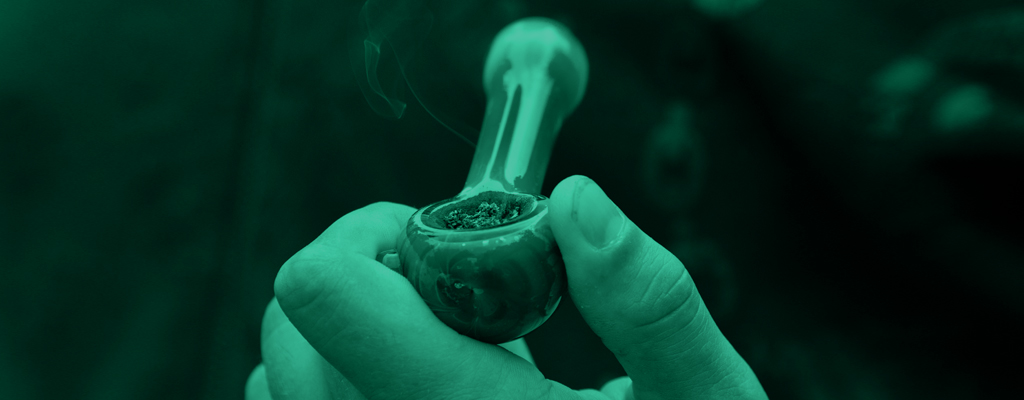NPS / Legal Highs: One Year On

The Psychoactive Substances Act is officially one year old. The legislation was introduced to reduce the impact that NPS were having on society in the UK, and try to limit the dangerous effects of these harmful substances. The legislation enforced a blanket ban on the production, distribution, sale and supply of legal highs which are intended for consumption.
Since 2008, legal highs slowly began to appear in the UK. Many users began to use the substances, due to the fact they produced similar effects as controlled substances. The difference however was that legal highs contained new substances which weren’t controlled by the Misuse of Drugs Act 1971. This was often overcome by simply doctoring different elements within the ingredients to produce new substances, therefore effectively flouting the existing legislation.
As well as trying to close this loophole, the new legislation also needed to address the issue with how legal highs were packaged and distributed. The packaging which contained the Psychoactive substances stated that they weren’t for human consumption, and advertised contents as bath salts for example. The Psychoactive Substances Act sought to overcome these by defining psychoactive as the following – ‘something that by stimulating or depressing a person’s central nervous system…affects the person’s mental functioning or emotional state’. Possession of NPS under the new legislation is not an offence, as law makers wanted to avoid mass criminalisation. The main thrust of the Act is intended to act against shops and websites selling NPS. Possession with intent to supply can carry up to 7 years and/or a fine, and possession in a custodial institution up to 2 years and/or a fine.
Since the selling of psychoactive substances was criminalised, the legitimate shops which sold it have gone out of business. Indeed, the Government website states that 332 shops across the UK have been closed or banned from selling psychoactive substances.
Despite this initial closure of a large quantity of shops, many fear the supply and selling has been driven onto the streets. Manchester Police Inspector Phil Spurgeon echoes this worry. In an interview with the Telegraph he says,
“I’m not being judgmental about the legislation, but the reality with the Psychoactive Substances Act is that it has shifted supply onto the streets. The product was probably more consistent in the head shops. Now it’s more varied, the make-up is constantly changing.”
Indeed, the shift from head shops to the streets has caused a change in the contents of the substances. Many believe that the substances now contain more potent and harmful chemicals which have a greater effect on users than when the products were sold in head shops. Dr. Rob Ralphs, a leading criminologist who is a lecturer and researcher at Manchester Metropolitan University, has claimed that psychoactive substances such as ‘Spice’ entering the UK are originating from as far away as China. They leave China in liquid form which contain the chemical compounds. It is then sprayed on to dried plant material and chopped up herbs or other substances.
The Psychoactive Substances Act has been successful in reducing the number of premises selling the substances, but unfortunately the problem has just been relocated with potentially even further harmful possibilities. The closing of high street shops which had been selling the substances forced users into other ways of obtaining it. In recent months there has been a rise in drugs being sold through the ‘dark web’. We posted an article on 6th January which looked at the rise in online availability of illegal drugs. The UK is one of the European market leaders, with drug purchases on the dark web generating up to £16 million every month. With such easy access to drugs online, users are able to simply place orders then have their drugs delivered right to their door. This makes it virtually impossible for the authorities to track and record results in large amounts of illegal drugs reaching the UK.
With the Psychoactive Substances Act now an act of law for one year, we will be keeping an eye out for more news and developments regarding psychoactive substances. The effects these substances have on people can be devastating, and despite the legislation now being in place, people are going to other means of obtaining the drugs. As a result of this there are almost daily stories of someone suffering after-effects of taking psychoactive substances, often with life threatening impacts.
About Randox Testing Services
Randox Testing Services is at the forefront of developing tests to detect the presence of NPS. One example of this is that the world’s first synthetic cannabinoid detection ‘spice’ test was developed at Randox.
In the endless pursuit of creating innovative tests for new and emerging legal highs, our expertise sets us apart from the rest of the industry. We provide tests for identifying NPS and operate to provide accurate results and customer satisfaction. For more information on our tests for psychoactive substances visit www.randoxtestingservices.com or contact us at testingservices@randox.com.
Watch our timeline showing the legislation changes and new testing measures brought in to tackle the use of NPS: Click here to watch